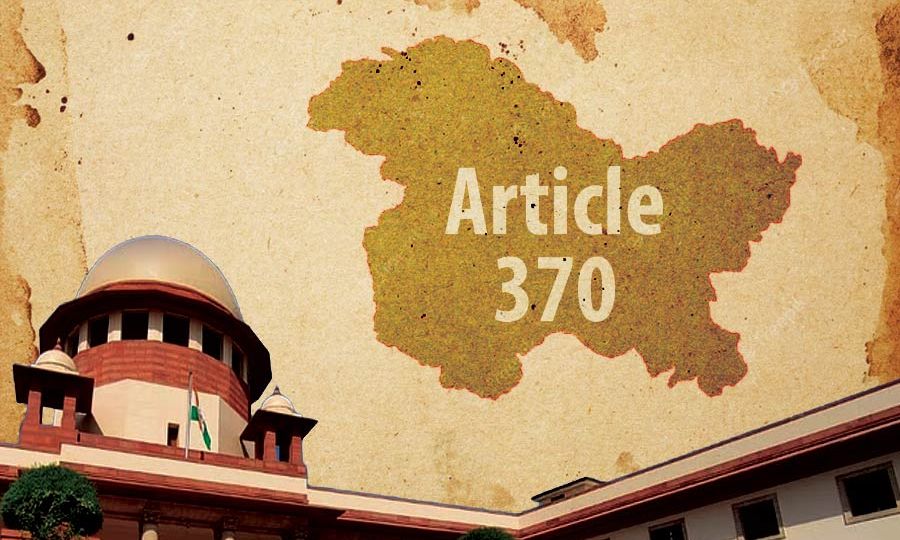
The December 2023 Supreme Court judgement upholding the abrogation of Article 370 has reignited a decades-old debate, throwing the spotlight on a complex and sensitive chapter in Indian history. While opinions fall fiercely on both sides of the spectrum, it’s crucial to move beyond simplistic narratives and engage in a nuanced examination of the judgment’s implications.
For me, the Article 370 judgment presents a multi-layered picture, brimming with legal, political, economic, and social considerations. While the verdict brings legal clarity to a long-standing dispute, it opens new chapters with both opportunities and challenges.
Moving Beyond Binaries:
The “for” and “against” binary often surrounding this issue obscures the richness and complexity of the situation. To fully understand the judgment’s impact, we must examine it through various lenses:
– Legal Framework: The abrogation of Article 370 necessitates reevaluating the existing legal framework in Jammu and Kashmir. How will national laws interact with the region’s unique circumstances? How will future legislation be conceptualized and implemented? Navigating this terrain requires careful consideration and an approach that respects both legal principles and local dynamics.
– Economic Integration and Development: The judgment paves the way for increased economic integration and potential development opportunities in J&K. However, ensuring equitable distribution of benefits and protecting the interests of local communities becomes paramount. Transparent strategies and community-driven development models are crucial to fostering prosperity without exacerbating existing inequalities.
– Human Rights and Security: The potential human rights implications of the judgment and the ongoing security concerns in the region demand unwavering attention. Upholding fundamental constitutional safeguards while maintaining stability requires a commitment to transparency, accountability, and dialogue.
A Future of Dialogue and Engagement:
The Article 370 judgment presents a turning point, not an endpoint. Moving forward, constructive dialogue and open discussion are imperative. This needs to involve all stakeholders, including the people of Jammu and Kashmir, legal experts, policymakers, and civil society organizations.
Here’s how we can contribute to a positive future:
- Promoting nuanced understanding: By delving deeper than the headlines and engaging in informed discussions, we can break free from the binary and embrace the intricate realities of the situation.
- Demanding accountability and transparency: Both from the government and other stakeholders, ensuring that human rights are upheld, development benefits reach the underprivileged, and concerns are addressed transparently.
- Supporting initiatives for reconciliation and dialogue: Creating platforms for meaningful engagement between diverse communities and fostering a spirit of mutual understanding and respect.
The Article 370 judgment may have settled a legal debate, but its ramifications will continue to unfold for years to come. By adopting a holistic approach, prioritizing human rights, and fostering inclusive dialogue, we can navigate this complex landscape and move towards a future that balances constitutional principles with the well-being of the people of Jammu and Kashmir.
binary ‘for’ or ‘against’ narrative, I believe a nuanced discussion is critical to understanding its implications.
While the verdict’s finality settles a long-standing legal debate, it undoubtedly opens new chapters in the socio-political and legal landscape of Jammu and Kashmir. From concerns regarding potential human rights repercussions to questions about economic development and administrative integration, the ramifications are multifaceted and need careful consideration.
From my perspective, I see the following key issues emerging from the judgment:
- Evolving legal framework: The implications for existing laws and the future legislative process in J&K require careful analysis. Understanding the interplay between national law and the unique circumstances of the region is crucial.
- Economic integration and opportunities: The potential for increased investment and development in J&K should be weighed against ensuring equitable distribution of benefits and respecting local sensitivities.
- Human rights and security considerations: Concerns regarding alleged human rights violations must be addressed transparently, upholding fundamental constitutional safeguards while maintaining stability in the region.
Navigating this complex terrain requires a commitment to dialogue, informed public discourse, and a recognition of the multifaceted impact of this landmark judgment. It’s imperative to move beyond simplistic narratives and engage in constructive discussions that prioritize both legal clarity and the well-being of the people of Jammu and Kashmir.

